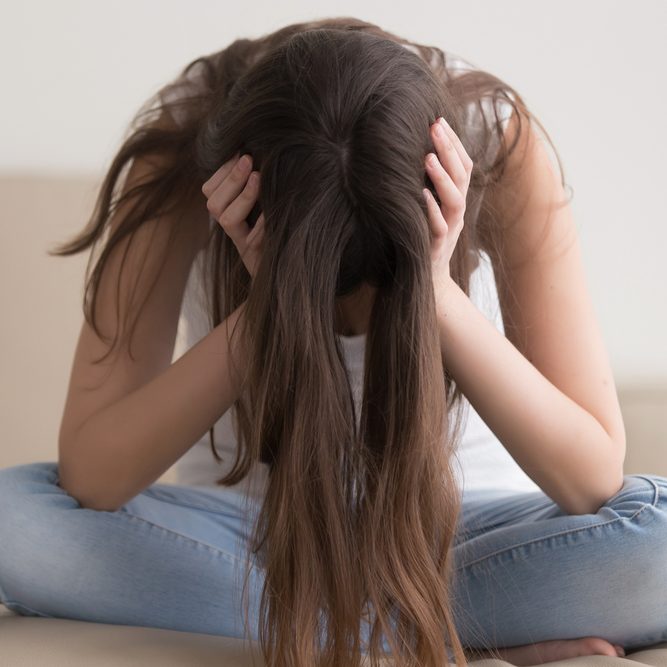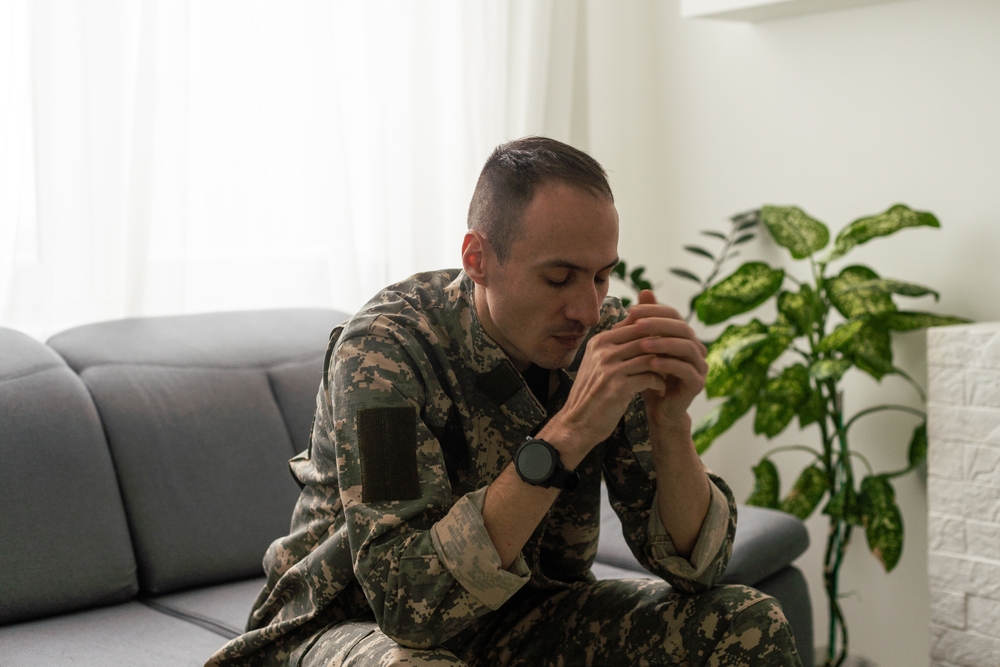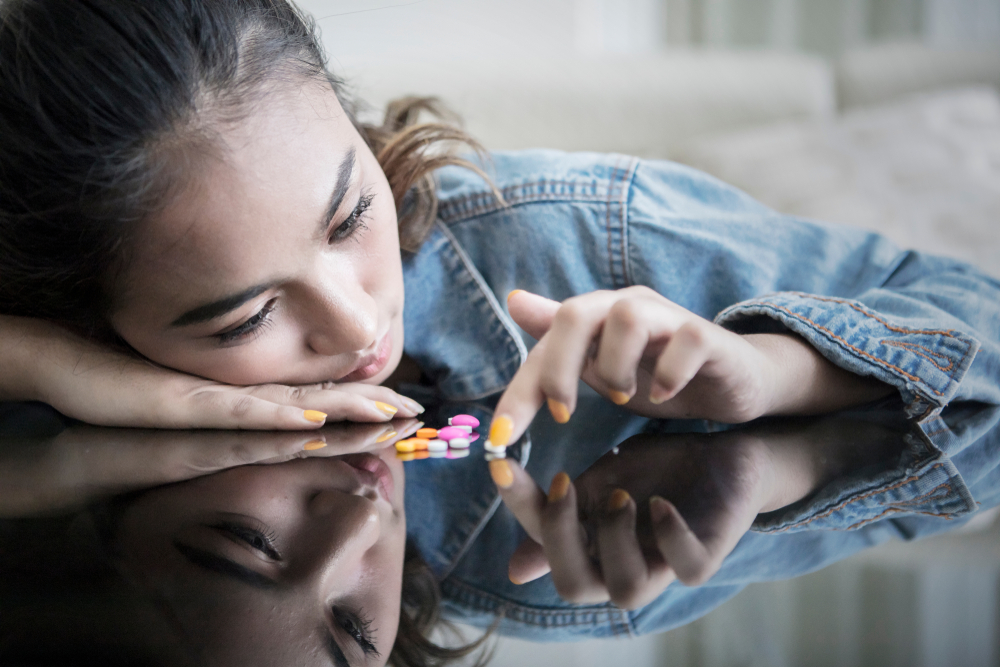Dual Diagnosis Programs: The Benefits of Rehab for Depression
Mental health conditions, such as anxiety and depression are common among people who also have substance abuse issues. Having a mental health diagnosis along with a substance abuse disorder diagnosis is called dual diagnosis, or co-occurring disorder. Depression is the most common dual diagnosis that occurs with addiction. People diagnosed with alcohol use disorder are 3.7 times more likely to have major (severe) depression and 2.8 times more likely to have dysthymia, a milder form of depression. Almost half (47.8 %) of adults aged 18 and older who have major depression are likely to also use substances.

Substance use and mood disorders, such as depression, often affect one another. People with depression may self-medicate with alcohol or another substance to alleviate symptoms of depression, and people with addiction often become depressed due to lifestyle difficulties associated with addiction. Sometimes, chemical changes that occur in the brain due to either mental illness or addiction can make one or the other condition worse. Fortunately, there are ways to address both depression alone and depression with addiction.
What is Rehab for Depression?
Most people who have depression can manage their condition with medication and/or outpatient counseling. But for some, a higher level of support is needed. They may enter a residential psychiatric facility, where they can be monitored by professional staff 24/7. They may also opt for a partial hospitalization program, where they attend treatment sessions three or more times a week for several hours at a time and return home after treatment. Rehab for depression often involves medication management, individual and group counseling, education on new coping skills, and other treatments such as recreational and holistic activities.
Rehab for Co-occurring Disorders (Dual Diagnosis Programs)
When depression occurs simultaneously with substance abuse, special dual diagnosis treatment is needed, so that each condition is properly addressed. Research shows that using an integrated approach and assuring coordination of treatment among the various professionals who treat a person with a co-occurring disorder will result in better, longer lasting treatment. Improved outcomes, such as decreased hospitalizations, reduced medication interactions, reduced criminal justice involvement, and improved quality of life are commonly achieved with integrated care as opposed to separated treatment regimes.
Integrated care for co-occurring disorders starts with a complete biopsychosocial assessment. Screenings and assessment that investigate your physical, family, social, educational, vocational, and mental health history, including substance use history, and any trauma-related history, are needed. Screening for possible suicidal concerns must be included. Then various elements of treatment, including medication management, counseling, social support, and case management are detailed in an individualized treatment plan. Coordination and communication between the various doctors, counselors, and community providers is important.
Mental Illnesses that Commonly Occur with Substance Abuse Disorder

The most common co-occurring disorder associated with addiction is depression. Anxiety, bipolar disorder, and post-traumatic stress disorder (PTSD) may also co-occur with addiction.
Depression affects about half of all people who have a dual diagnosis. It can manifest as severe– or major–depression, moderate depression, or mild but long-term depression (dysthymia). Treatment will vary depending on which type of depression is being experienced.
Major Depression and Addiction Treatment
Major depression is the most serious form of depression. It is diagnosed when you experience symptoms on most days over a period of two weeks or more. Symptoms of major depression include:
- Feelings of sadness or emptiness
- Anxiousness, persistent worrying
- Feeling guilty, worthless, or hopeless
- Restlessness, irritation, or frustration
- Loss of interest in activities you used to enjoy
- Thoughts of suicide or self-harm
When major depression occurs with substance abuse, the substance use often intensifies the depressive symptoms. Lethargy, fatigue, or sleepiness may increase. Reduced motivation and loss of interest in normal activities often occur. Most concerning, substance use can lower inhibitions and result in risk-taking behavior, which may include suicidal tendencies or self-harm.
Long-term Depression (Dysthymia) and Addiction Treatment
Dysthymia is a long-term and persistent, although less intense, form of depression. Symptoms include:
- Moderately sad or gloomy mood that persists for two years or more
- Chronic lack of energy
- Chronic irritability or impatience
- Trouble focusing and staying engaged
When dysthymia is present with substance abuse, symptoms may seem to subside temporarily. But the effects don’t last, and the substance use worsens the symptoms of both conditions once the temporary improvement in mood dissipates.
Anxiety and Addiction Treatment
Anxiety is one of the most uncomfortable mood disorders to experience because it includes feelings of worry, dread, and fear. Although these concerns are not usually based on objective reality, they feel real, and in extreme cases can make you feel as though you are physically in peril. This extreme anxiety symptom is called a panic attack.
Symptoms of anxiety include:
- Trouble concentrating or making decisions
- Irritability, restlessness
- Feelings of danger, panic, or impending doom
- Trembling or shaking
- Trouble sleeping
Substances are often used to calm anxiety, but this can backfire, because long-term use of substances can lead to more anxiety and even feelings of paranoia. Anxiety symptoms can be treated with relaxation therapy, behavioral therapy (breathing exercises, keeping a mood chart, etc.), and medication.
Bipolar (Depression) Disorder and Addiction Treatment
Bipolar disorder, once known as manic depression, involves mood swings between sadness and elation, and shifts in energy levels from lethargic to hyper-active. It is diagnosed when you have had at least one major depressive episode and one full manic or one hypomanic (less severe) episode. Bipolar disorder sometimes includes a psychotic experience, where your grasp of ordinary reality is impaired.
Symptoms of bipolar disorder include:
Mania
- A hyped up, jumpy, or excessively upbeat feeling
- Excessive talkativeness
- Racing thoughts
- Impulsiveness
Depression
- Sadness, emptiness
- Restlessness, irritation
- Loss of interest in activities
- Trouble concentrating
Substance use will often worsen bipolar symptoms and increase their intensity. Substances used during a manic episode can lead to impulsively engaging in reckless behaviors and making poor judgments.
PTSD and Addiction Treatment
PTSD, or post-traumatic stress disorder, is a reaction to trauma and occurs following a significantly disturbing or frightening experience or event. PTSD is common in cases of abuse, neglect, and combat-related experiences.
Symptoms of PTSD include:
- Being easily startled or frightened
- Feeling a need to be on guard against danger
- Trouble sleeping
- Trouble concentrating
- Irritability, anger, or aggressiveness
Substance use with PTSD can often exaggerate symptoms. Many military veterans have dual diagnosis disorders that include PTSD and substance use disorder. Treatment involves counseling, relaxation therapy, possible exposure therapy, and, often, medication.
Therapies and Treatments for Co-occurring Disorder

Treatment for co-occurring disorders often requires coordination between providers. Medication management must consider both the specific mental health condition and the type of substances that were used. Common psychological therapies used include the following:
- Cognitive behavioral therapy (CBT): CBT involves learning how thoughts and feelings affect behaviors and how to make better choices.
- Motivational-enhancement therapy (MET): MET is a talk therapy that works to encourage thoughts and behaviors that increase motivation for positive change and taking actions to achieve it.
- Dialectical behavioral therapy (DBT): DBT is a type of cognitive behavioral therapy that works to reduce the perceived intensity of negative emotions and replace impulsivity and self-blame with rational thinking and self-acceptance.
- Exposure or trauma-informed therapy: This approach works by slowly desensitizing a person to trauma-related triggers in a safe environment, while also bringing acceptance and meaning to the trauma experience.
- Coping skills-building therapies: This approach is used to teach strategies for managing stress or triggers, including reframing (seeing the glass half full vs half empty), using delay and distraction to avoid undesirable behaviors such as substance use, and coaching on problem-solving and resilience.
Teletherapy and online counseling have also increased in popularity in recent years. Remote addiction therapy is a great option for individuals who otherwise cannot afford the cost of outpatient treatment, or cannot conveniently visit an outpatient facility in person.
Sources:
- Alcohol Research (2019). National Institutes of Health/National Library of Medicine. Alcohol Use Disorder and Depressive Disorders. https://www. ncbi.nim.nih.gov > articles > PMC6799954
- Substance Abuse and Mental Health Services Administration (SAMHSA) (2021) Key Substance Use and Mental Health Indicators in the U.S.: Results form 2020 National Survey on Drug Use and Health. PDF. https://www. Samhsa.gov > reports > rpt35325 > pdf
- Substance Abuse and Mental Health Services Administration (SAMHSA) (2020). SAMHSA Tip 42 Publication: Substance Use Treatment for Persons With Co-Occurring Disorders https://store.samhsa.gov/product/tip-42-substance-use-treatment-persons-co-occurring-disorders/pep20-02-01-004.
- What is Rehab for Depression?
- Rehab for Co-occurring Disorders (Dual Diagnosis Programs)
- Major Depression and Addiction Treatment
- Long-term Depression (Dysthymia) and Addiction Treatment
- Anxiety and Addiction Treatment
- Bipolar (Depression) Disorder and Addiction Treatment
- PTSD and Addiction Treatment
- Therapies and Treatments for Co-occurring Disorder
More Specialty Treatment Programs

Women’s Rehab
Women’s Drug Rehab: Overcoming Addiction in a Supportive Environment According to the 2019 National Survey on Drug Use and Health

Veterans Drug Rehab
Addiction Treatment Programs for Veterans U.S. military veterans from all branches of service–Army, Navy, Air Force, Coast Guard, Marine Corps,

Teen Rehab
Addiction Treatment Programs for Teens More teenagers are using illicit drugs than ever before. According to the National Center for